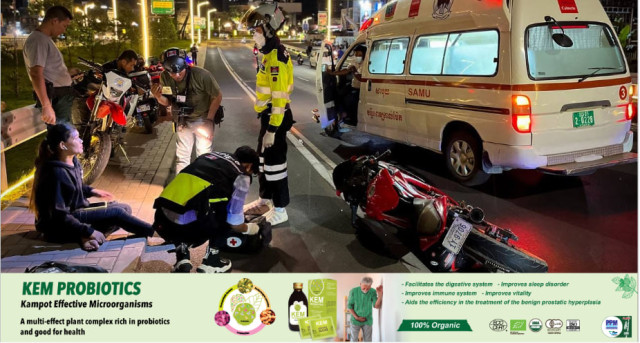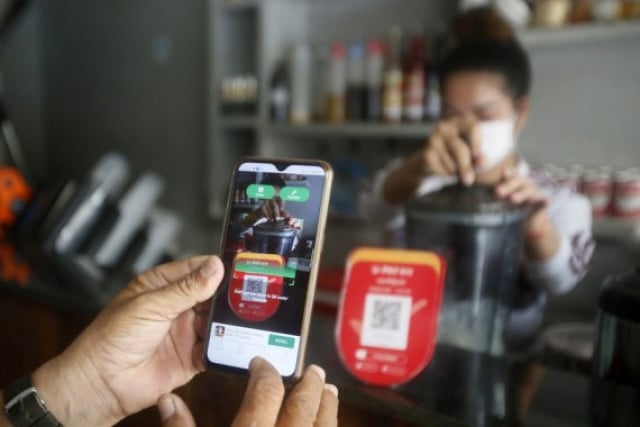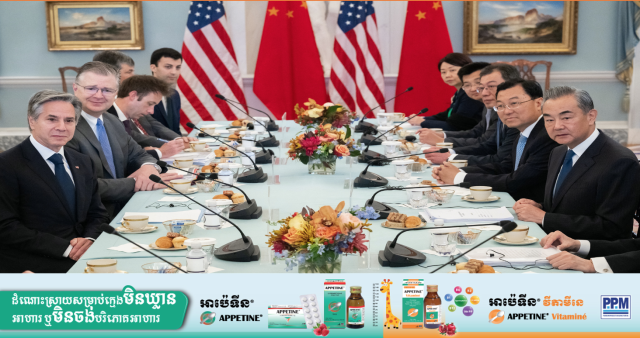Health Department Warns Against ‘Unprofessional Riders’ Opening the Way for Ambulances

- By Chhum Chantha
- and Meng Seavmey
- January 8, 2024 7:09 PM
PHNOM PENH – Phnom Penh’s Health Department has warned to take legal action against motorbike riders who open the way to ambulances provide first aid on arrival at the patient’s home, without proper medical training and the department’s permission.
“The act has caused traffic accidents and disorder on the roads,” the department said in a statement issued on Jan. 5, specifically mentioning Phnom Penh, where the practice has gained popularity.
“These days there have been some motorbike riders who opened the way to ambulances within the capital. The act has caused a negative image, disorder on roads, affected emergency work, and caused misunderstanding in the department. Moreover, it might cause traffic accidents and worsen the state of the patient because those people are not from the medical profession,” the statement reads.
The department refers to small groups of people who have decided to open the way to ambulances amid the chaos of Phnom Penh’s streets.
They use their own motorbikes, with flashlights and signs presenting themselves as a “first aid” team. They also provide first aid on arrival – as they often arrive a few minutes before the ambulance – without permission from the department or being recognized as part of the medical profession.
The department considers such action illegal and calls on those people to stop. Relevant national police forces are also requested to detain those individuals to await legal sanctions.
But to Yong Kim Eng, the president of the People Center for Development and Peace, these motorbike drivers are sometimes helpful as they allow ambulances to travel faster through the city’s streets.
He didn’t see any disorder caused by such an initiative.
“It is a good gesture from them to take some of their time to open the way to ambulances. It's considered social work, too,” he told Cambodianess on Jan. 6.
“If there was at least a police motorbike leading the way, it would be even better for getting ambulances to hospitals faster. These individuals wouldn’t even be needed anymore,” he added.
Kim Eng also suggested setting up guidelines to facilitate ambulance traffic, and to communicate them to the population, starting with the more affluent social classes.
“I have seen cases where ambulances [with a patient inside] can’t go ahead because powerful people who seemed to be in a hurry want to go first instead. Such behavior has to change, ambulances are the priority,” he said.
San Chey, the executive director of the Affiliated Network for Social Accountability (ANSA), agrees that raising awareness among the public is a good solution.
“For example, the Ministry of Health or Phnom Penh’s Health Department should issue the information about who is preferred to open the way for ambulances,” he said on Jan. 7.
In case of an accident, citizens who want to help the community can report the situation to the department, to help determine the cause of it, Chey added.
Traffic police officers are also encouraged to familiarize themselves with the standards, so that they know how to behave in different situations and facilitate the passage of ambulances in emergencies.
“In addition, working with institutions with traffic expertise is also a way of cooperating in this area,” he added.















